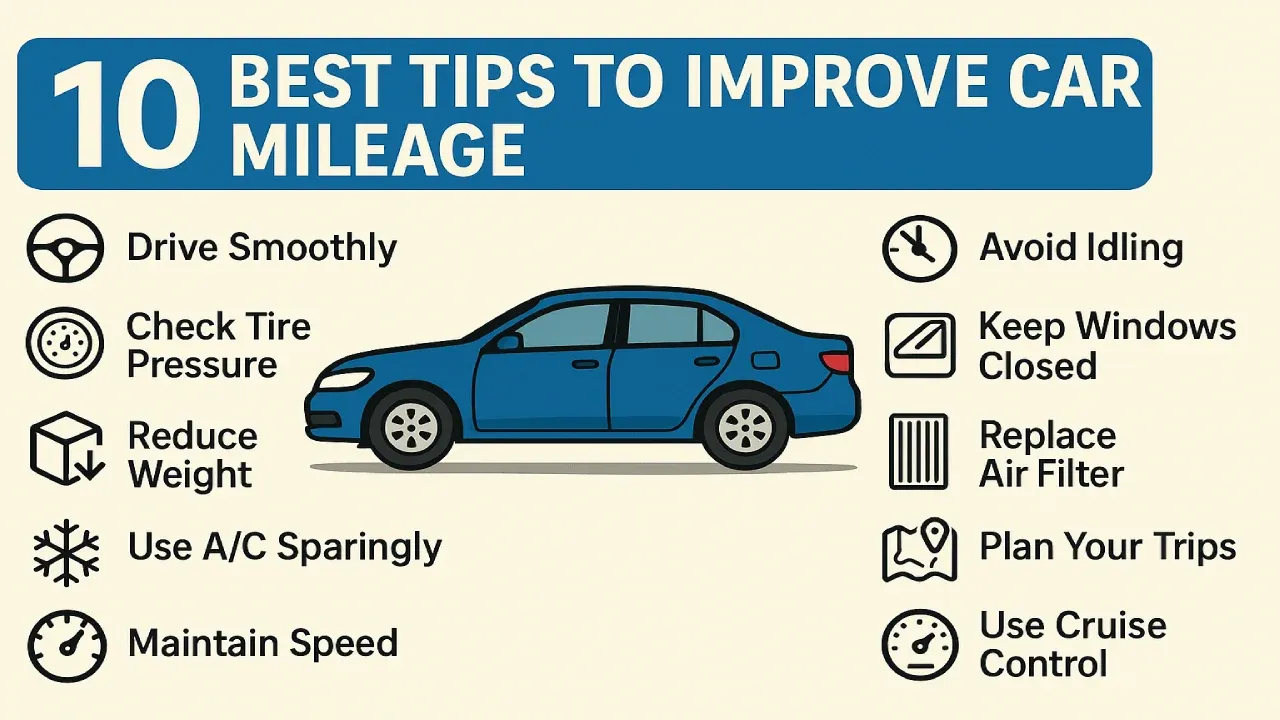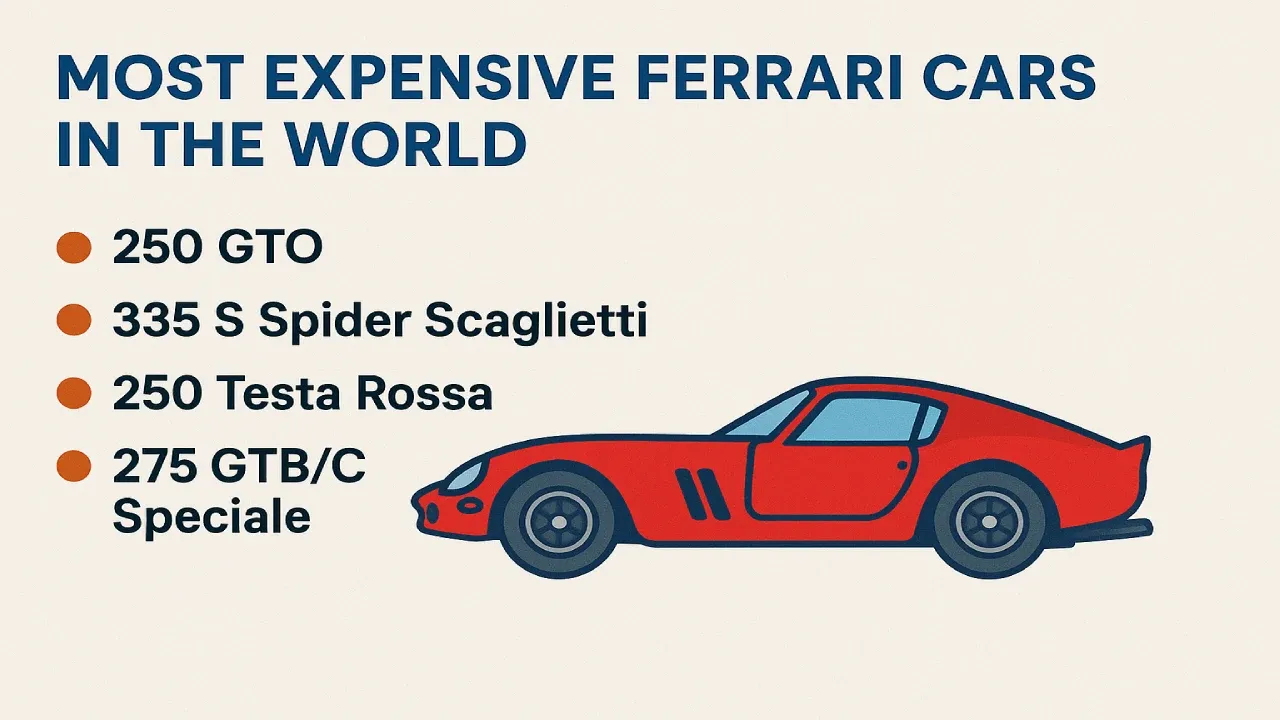With rising fuel prices and environmental concerns, it is important to maintain an efficient fuel system. Car mileage refers to the distance that a car travels for a certain amount of fuel, generally measured in miles per gallon or kilometres per litre.
High mileage implies that less fuel is required, which not only reduces carbon emissions but also lowers fuel costs.
Car mileage is dependent on the brand and the build, but there are ways one can improve their car's fuel efficiency.
Why is Car Mileage Important?
Car mileage is important because it states how efficiently a car uses its fuel to travel a certain distance. If the mileage, or the distance travelled by a car, is adequate for the fuel it consumes, then it is productive and will require less fuel than other cars.
The importance of good mileage is as follows:
Saves Cost on Fuel: Higher Mileage indicates that fuel is used efficiently, therefore, reducing the cost spent on fuel.
Environmental Impact: Cars with higher mileage have lower carbon emissions, which helps reduce greenhouse gas emissions.
Increase Vehicle Lifespan: Better mileage also comes with improved maintenance, which helps extend its life.
15 Tips to Help You Get More Miles Per Gallon
Here are 15 simple yet effective ways to improve your car’s fuel efficiency and transform your ride.
1. Drive Smoothly
For better mileage, one should avoid aggressive driving and try to drive smoothly, as it improves the efficiency of the engine and saves fuel.
Avoid Sudden Acceleration
Abrupt acceleration uses more fuel. Gradually increasing your speed helps reduce fuel usage.
Gentle Braking
Sudden stops waste the momentum and burn more fuel. Instead, observe the traffic ahead and brake smoothly.
2. Maintain Steady Speeds
Maintaining a steady speed could also be beneficial as it avoids speed changes, which improves fuel economy.
Use Cruise Control on Highways
Maintaining a constant speed avoids unnecessary fuel loss from frequent acceleration.
Avoid Traffic Jams During Peak Hours
Stop-and-go traffic can severely reduce your fuel economy.
3. Keep Your Tyres Properly Inflated
Underinflated tyres increase rolling resistance, which forces the engine to work harder, thus reducing its efficiency.
Check Tyre Pressure Monthly
Underinflated tyres increase rolling resistance and fuel consumption.
Use Nitrogen if Available
Nitrogen maintains tyre pressure more consistently, which can help improve the mileage in the long run.
Also Read:- 5 Seater Car
4. Limit Use of Air Conditioning
Excessive use of air conditioning (AC) and other electrical systems puts an extra load on the engine to work harder, making it more inefficient.
Use AC Wisely
Air conditioning puts an additional load on the engine. Use it only when necessary.
Keep Windows Up
While using AC, keep the windows closed to maintain the cooling.
5. Avoid Idling for Long Periods
Leaving your car idle when not needed wastes a lot of fuel, reducing car mileage.
Turn Off the Engine
If you’re waiting for more than 30-45 seconds, it’s better to switch off the engine.
Use Start-Stop Feature
Cars with automatic start-stop help reduce fuel loss during idle time.
Also Read:- Also Read:- List of Essential Car Driving Tips for Monsoon
6. Reduce Extra Car Weight
Vehicles carrying excess weight need more fuel, especially during acceleration. This decreases the car mileage.
Remove Excess Weight
An unnecessary load on your car can decrease your mileage.
Remove Roof Racks
Roof racks should be removed if they are not in use, as they cause wind resistance and add weight.
7. Use the Right Engine Oil
Using the right engine oil recommended by your manufacturer can improve the efficiency of the car, as they are naturally designed to perform better with specific oils.
Follow Manufacturer Guidelines
The grade of oil that your manufacturer recommends naturally goes with your car and improves your car’s engine efficiency.
Timely Oil Changes
Old oil can cause more friction and fuel loss, and therefore should be changed on time.
8. Keep Your Engine Tuned
A well-maintained car has better fuel economy and drives more efficiently. This is one of the most effective ways to improve your car mileage.
Regular Servicing
A car that is serviced on time and is well-kept uses fuel more efficiently.
Clean Air Filters
Blocked filters reduce airflow and fuel economy, causing a decrease in car mileage.
Also Read:- List of DC Modified Cars in India
9. Plan Your Routes
A well-planned trip reduces fuel usage as it saves the car from excess travelling, resulting in better car mileage.
High-Traffic Areas Should be Avoided
Take simpler routes with less traffic to save time and fuel.
Use Navigation Apps
Use apps like Google Maps to steer clear of traffic and make your drive smoother and more fuel-efficient.
10. Use Fuel from Trusted Fuel Stations
Quality fuels result in better car mileage compared to low-quality or adulterated fuel, as they improve fuel economy and potentially lower maintenance costs.
Buy Good Quality Fuel
Low-quality fuel can reduce combustion efficiency and damage the engine.
Choose Reliable Fuel Brands
Choose pumps with high sales and good reviews to make sure you get fresh
unadulterated fuel.
Also Read:- Most Reliable Cars in India
11. Shift Gears Properly
Shifting gear at the right RPM saves fuel and increases the distance that the car travels on the same amount of fuel.
Avoid Over-Revving
Shift gears at the right RPM to reduce fuel wastage.
Use Higher Gears When Possible
Driving at lower RPMs in higher gears is more fuel-efficient.
12. Use Eco Mode (If Available)
Eco Mode adjusts engine and transmission settings (and sometimes the AC) to optimise fuel use, especially in traffic.
Switch to Eco Mode in Traffic
This mode optimises fuel consumption by adjusting engine and transmission settings, and sometimes even the air conditioning.
Combine with Smooth Driving
Works best when paired with gentle acceleration and braking.
Also Read:- Best Cars with Stability Control System
13. Parking Strategically
Planning your parking can also improve your car mileage.
Choose Shaded or Covered Parking
Parking in the shade reduces the need for AC when you return to your car.
Park Facing Out
Reduces engine idling when reversing, especially in tight spots.
Also Read:- How to Find VIN Numer in Car
14. Keep Your Fuel Tank Half Full
Half-filled tanks may reduce the weight of the car. This practice can work even better when combined with lighter wheels and accessories.
Avoid Driving on Low Fuel
A nearly empty tank can damage the fuel pump and reduce mileage.
But Don’t Overfill
Keep it between one-fourth to three-fourths for optimal weight.
15. Don’t Ride the Clutch (Manual Cars)
Riding the clutch increases fuel consumption and wears out components faster, especially in manual transmission vehicles.
Avoid Keeping Foot on the Clutch
Putting your foot on the pedal can cause partial engagement, which adds strain on the engine.
Use Neutral When Stationary
When idling at signals or in traffic, shift to neutral instead of pressing the clutch continuously.
What to Avoid to Improve the Car Mileage
Motorists often make some common mistakes while driving that should be avoided for better mileage and fuel efficiency. Some of the general mistakes that drivers often make, and what they should do to improve them, are as follows:
Overusing air conditioning
Frequent short trips
Carrying unnecessary weight
Delayed maintenance
Over-speeding or rash driving
For better fuel economy, try to avoid the following:
Avoid aggressive acceleration
Maintain proper tyre pressures
Avoid unnecessary idling
Avoid roof racks unless needed
Do not use incorrect fuel grade or oil
Also Read:- Most Expensive BMW
Conclusion
Car mileage isn't just about its built-in capacity, but it's also about how one drives and maintains their car. Following these tips will not only increase your car mileage but possibly its lifespan too.




